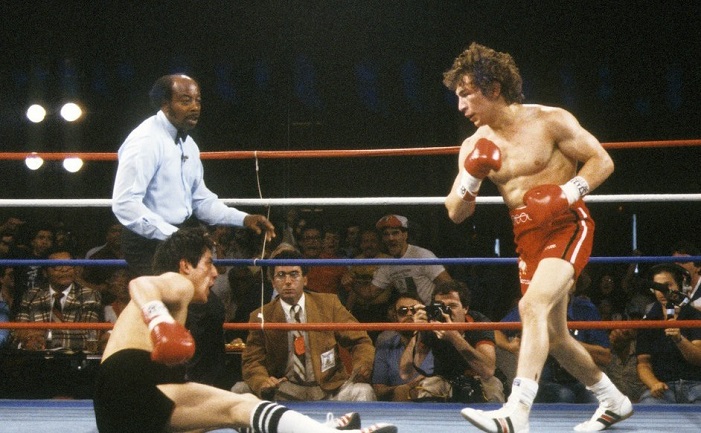By this time all of America knew the Ray Mancini story; precious few knew the tale of Arturo Frias. While “Boom Boom” Mancini was something out of a storybook and had captured the imagination of millions of sports fans, Frias was a relative unknown. The fact of the matter was when it came to a nationally televised title match with Mancini, Frias wasn’t even supposed to be there. Mancini was on the verge of stardom, the type that transcends boxing; Frias was just a stepping-stone. Or so many thought.
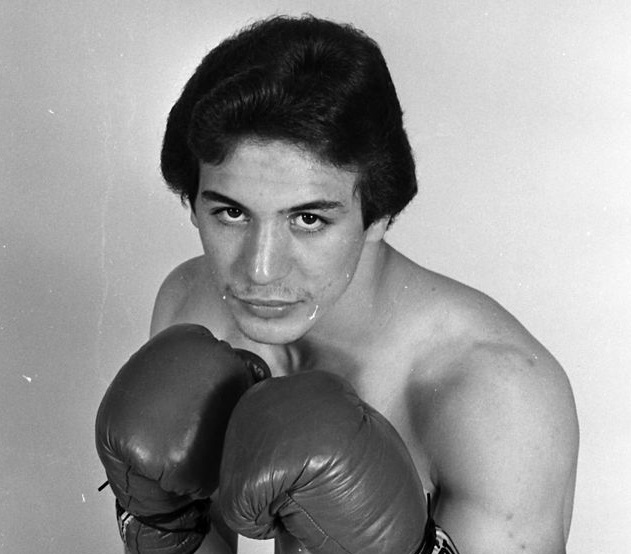
While Mancini was all mid-west wholesomeness, Frias was from East L.A., an admirer of Mando Ramos, who had started boxing when he was only six years old. He turned pro in 1975, but after notching 16 straight wins he ran into hand trouble and took two years off, driving a truck to make ends meet before getting back in the ring in 1980. His big chance came in May of 1981 when he fought former WBA champion Ernesto Espana in Venezuela, but the hometown split decision went Espana’s way.
But just six months later Frias got a bigger chance, one that was totally unexpected. By this time Claude Noel held the WBA title and when his opponent for a title match had to withdraw, Frias got the call to be a last second replacement. In Las Vegas and on national television, Arturo made the most of the opportunity, forcing the older Noel into a rough-and-tumble brawl before putting him down for the count in round eight with a huge right hand.
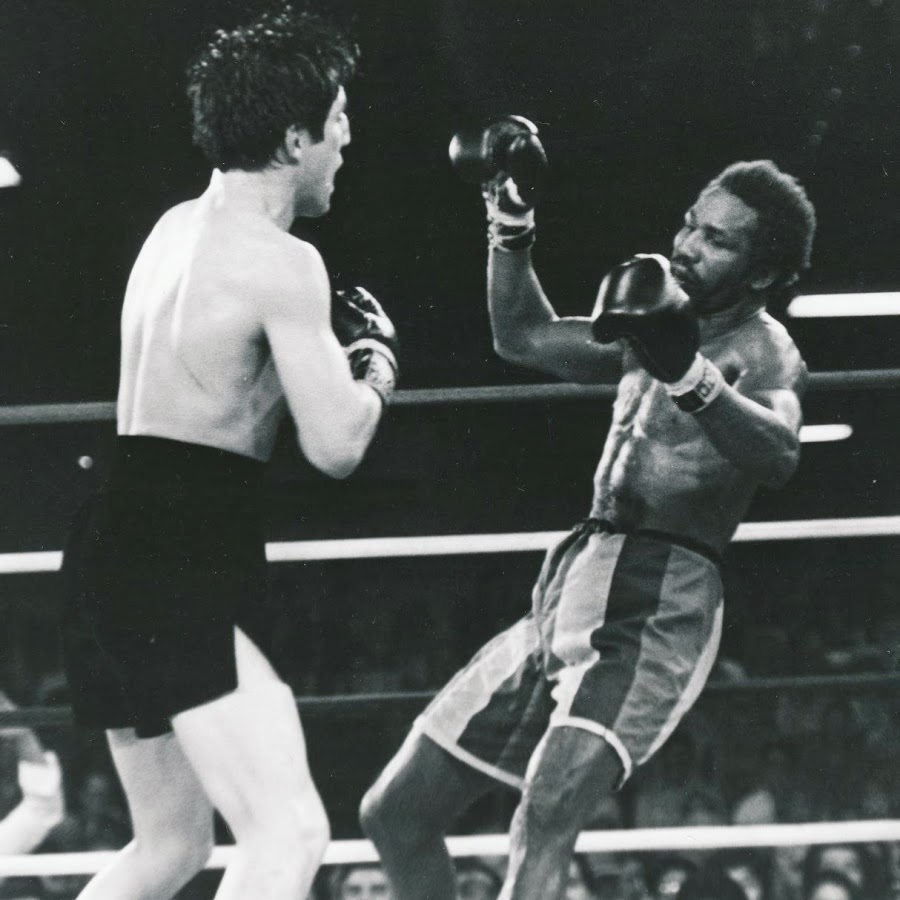
Meanwhile, two months before Arturo’s title win, Ray Mancini had received a big chance of his own when he challenged Alexis Arguello for the WBC version of the lightweight title. Also broadcast on national television, the Arguello vs Mancini fight drew huge TV ratings thanks to the touching story behind it. Young Ray was fighting not just for himself but for his father, a former top contender and a veteran of World War II.
Lenny Mancini had been trained by none other than the great Ray Arcel who brought Lenny from Youngstown, Ohio to New York City where the elder “Boom Boom” became popular for his all-action fighting style. In 1941 he faced world lightweight champ Sammy Angott in a non-title match and when the split decision win for Angott was announced, the crowd was more than a little vocal in its disapproval. It should be noted that the referee that night scored Mancini a clearcut winner.
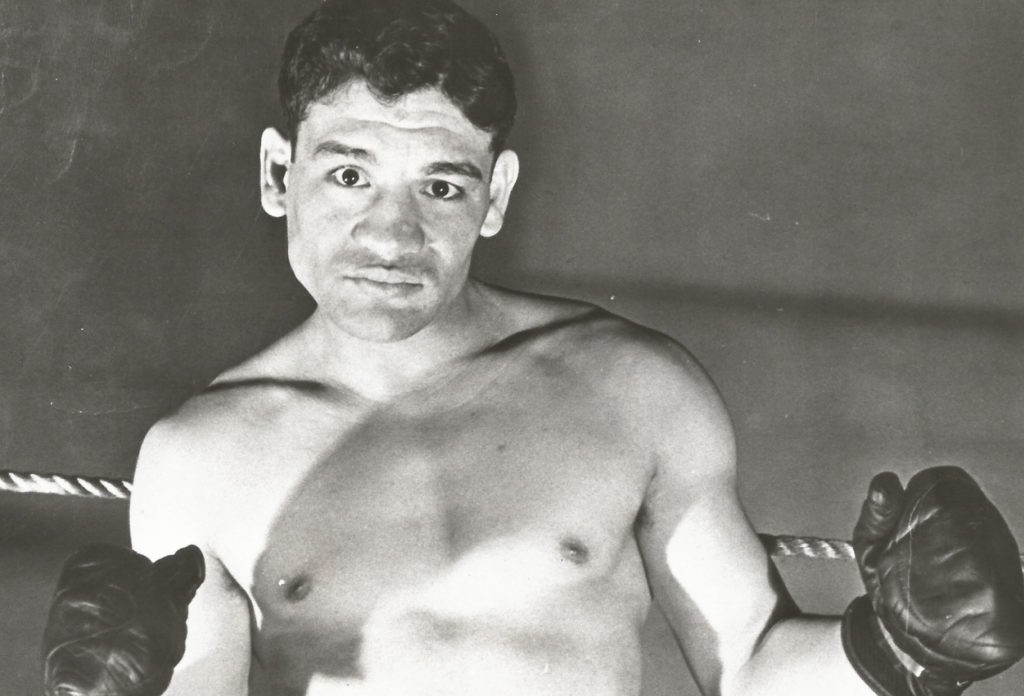
The bout was controversial enough to earn Lenny a rematch, this time with the title on the line, but then war broke out and Lenny was drafted. He pleaded for an extension so he could fight for the title before going overseas as an infantryman, but he was turned down. In France he was wounded by a mortar shell and eventually returned to America with shrapnel still embedded in his body. He attempted a comeback as a middleweight and put together a decent string of wins, but failed to secure a title shot. With a record of 46-12-3 he retired, settling down in Youngstown, Ohio with his wife and and a career at General Fireproofing. His son Ray idolized him and at a young age decided he too would become a boxer and win the title for his father.
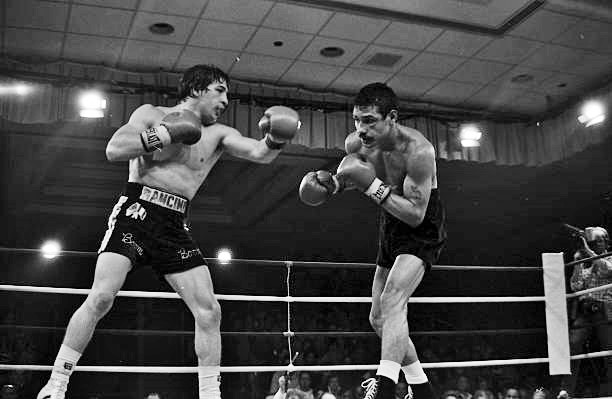
But against Arguello, Mancini’s dream was denied. Young Ray, with a record of just 20-0, was in over his head against a champion who entered the ring with a ledger of 67-5. Mancini fought bravely and appeared to have the upper hand in the middle rounds, before Arguello took over in the late going and battered his young foe. Knockdowns in rounds 13 and 14 brought the match to an end and the entire nation shed a tear for Mancini when he shed his own on the shoulder of his wheelchair-bound father. For his part, Arguello was impressed and predicted that Ray would one day be a champion, reminding his foe that he too had suffered defeat in his first attempt at a world title.
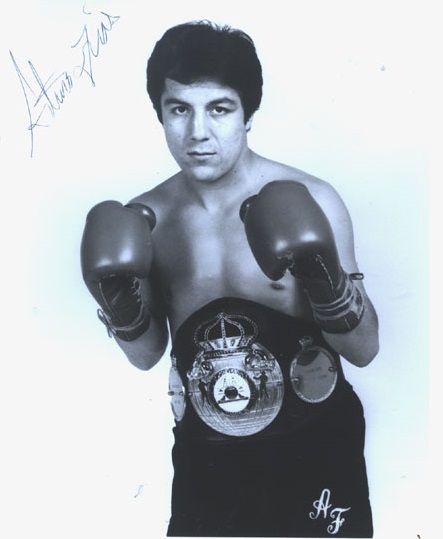
Alexis may have been confident in his prediction but no one at the time foresaw it coming to fruition just seven months later. But the public interest was keen and after Ray won a couple of tune-up matches, Mancini vs Frias was set for The Aladdin Casino in Las Vegas and broadcast on CBS television. The match lasted less than three minutes but no one at The Aladdin could say they didn’t get their money’s worth. Suffice to say, Mancini vs Frias represents one of the most spectacular opening rounds in boxing history.
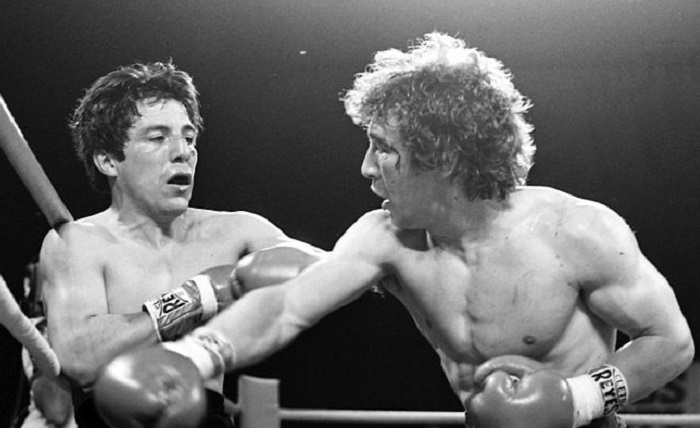
They met at ring center and took all of about eight seconds to warm up before Mancini unloaded some heavy shots to the champion’s body. Frias took offense and landed a big right followed by a bigger left hook that sent an off-balance Mancini staggering into the ropes as the crowd rose to its feet. The challenger righted himself and the slugfest was on. It wouldn’t last long, but while it did, it was non-stop action and excitement.
Convinced he had stunned Mancini, Arturo pursued and unloaded bombs, many of them landing. His right hand was connecting upstairs and he was getting home with both fists to the body. But at the same time Ray was landing his share too and now Frias was cut underneath the left eye. This was an absolute scorcher, a whirlwind battle, both men like thresher machines gone haywire as they traded huge shots at breakneck speed.
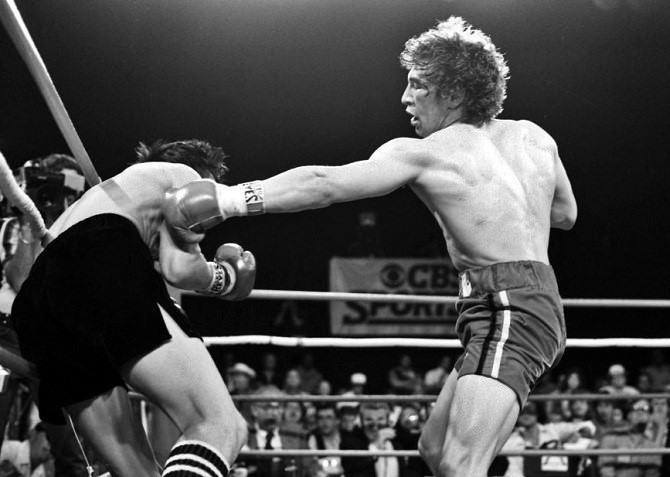
Mid-way through the round the physically stronger Mancini bulled Frias to the ropes and both unloaded, and again it was Frias briefly stunning the challenger, this time with the right hand. Mancini then forced a clinch but it was Arturo who was winded from the frenetic pace and looking for a breather. Instead he got a series of thunderous left hooks to the face, the last one putting him on the canvas, hard.
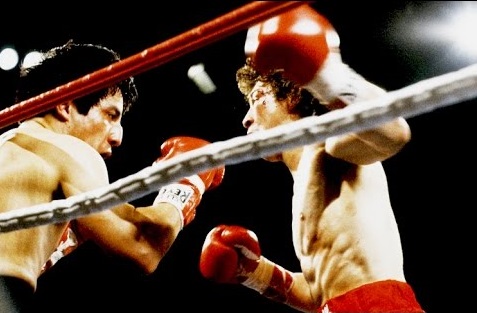
The champion beat the count but he was tired and hurt and Mancini forced him to the ropes and battered him with both hands, throwing twenty-five unanswered punches. Frias was either too tired or too stunned to force a clinch and after he absorbed a series of flush head shots the referee had little choice but to stop the match with just six seconds left in the round. Afterwards Frias and his people would wonder aloud why he wasn’t given a chance to recover and carry on in round two, but when you stand there and just take shots, you can’t fault the referee. And so it ended, one of the greatest opening rounds of all-time and the fulfillment of Ray Mancini’s lifelong dream.
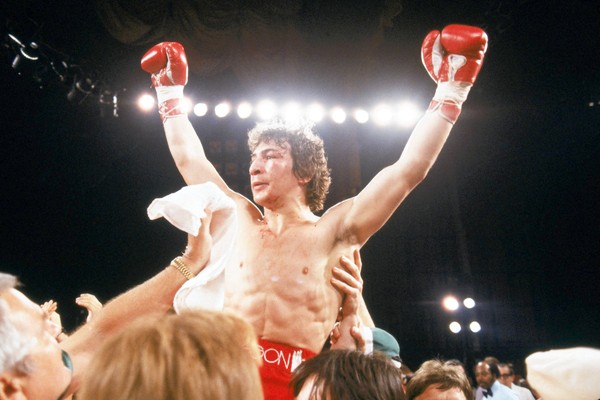
“I thank God for the strength and power he gave me to win this title,” declared Mancini afterwards. “Art stung me early and I was hoping to just get through the round. But when I got him on the ropes I just kept throwing punches until the referee stopped it.”
Mancini would successfully defend his title against Espana in his hometown of Youngstown, but then the dream became a nightmare in the bout following when he battled Deuk-Koo Kim on live television, the Korean challenger later dying in hospital following a brutal war. It was a fight that would have a huge impact on the sport. — Robert Portis

